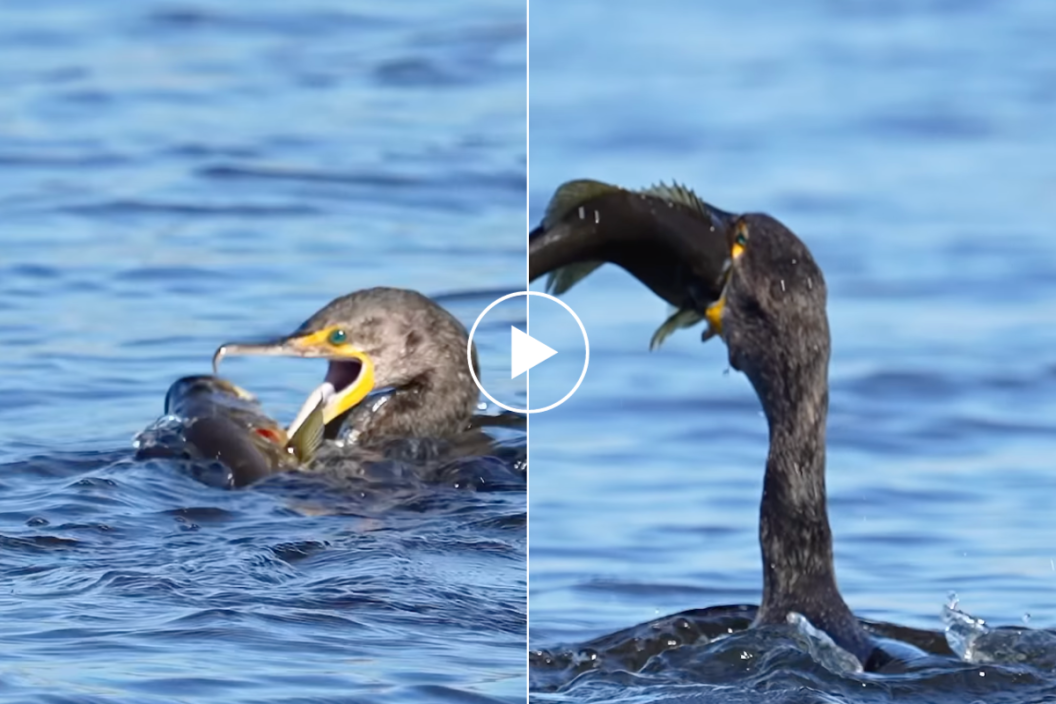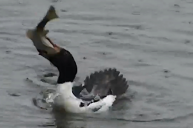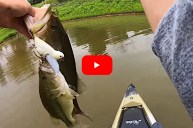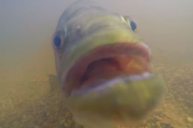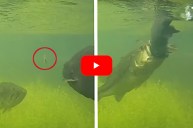Waterfowl are ruthless when it comes to capturing fish. And in all fairness, if they don't get ahold of them, they won't be eating. Once they set their sights on a scaled target, it's game on.
Mark Smith, a wildlife photographer, was lucky enough to capture the exact moment a cormorant caught a largemouth bass, eager for a tasty meal, and posted it to his Instagram back in mid-August. Despite the bird's best efforts, the fish doesn't go down without a fight. The cormorant tosses the bass in the air, spinning it around to get a better grip. After a few tosses, the bass bounces off of the cormorant's narrow beak. While it may seem like this is the end for the fish, it slips out of the bird's grasp.
Unfortunately, the bass wasn't quite quick enough for the cormorant. It caught it's prize and wolfed it down. Smith captioned the video, "I'm always amazed at a bird's ability to capture prey. Cormorants especially. These birds catch fish underwater by doing nothing more than chasing them down and grabbing them with their mouths. This bird caught a prized largemouth bass, but can it swallow this massive fish?" It did indeed swallow the fish, tail, and all.
Viewers were equally amazed at the birds ability to swallow the fish even though it was larger than its head. While it may look unbelievable, cormorants are adept at eating fish head first despite the larger size. The hooked upper bill is vital in helping the bird catch fish, which are the main parts of their diet. The birds eat over 250 different species of fish, and the occasional insect, amphibian, or crustacean.
In order to stay close to their food source, cormorants stay near the water. The birds are found throughout most of North America, much to fishermen's disdain. According to the U.S. Fish and Wildlife Service, fishermen worry that the birds have a negative impact on fish populations, which is the subject of some upcoming studies. For now, the bird population is protected by the Migratory Bird Treaty Act to ensure their populations continued growth.
READ MORE: 10 Animals That Are Way Better at Fishing Than Us
